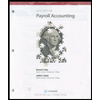Alamar Petroleum Company offers its employees the option of contributing retirement funds up to 5% of their salaries, with the contribution being matched by Alamar. The company also pays 80% of medical and life insurance premiums. Deductions relating to these plans and other payroll information for the first biweekly payroll period of February are listed as follows: Wages and salaries $2,500,000 Employee contribution to voluntary retirement plan 89,000 Medical insurance premiums 47,000 Life insurance premiums 9,500 Federal income taxes to be withheld 450,000 Local income taxes to be withheld 58,000 Payroll taxes: Federal unemployment tax rate 0.60% State unemployment tax rate 5.40% Social Security tax rate 6.20% Medicare tax rate 1.45% Required: Prepare the appropriate journal entries to record salaries expense and payroll tax expense for the biweekly pay period. Assume that all employees' cumulative wages do not exceed the relevant wage bases for Social Security. Also assume that all employees' cumulative wages do exceed the relevant unemployment wage bases at the end of January. Salaries are not yet paid Note: If no entry is required for a transaction/event, select "No journal entry required" in the first account field. Record salaries and wages expense. Record payroll tax expense. Record salaries and wage expense for fringe benefits provided by the employer.
Alamar Petroleum Company offers its employees the option of contributing retirement funds up to 5% of their salaries, with the contribution being matched by Alamar. The company also pays 80% of medical and life insurance premiums. Deductions relating to these plans and other payroll information for the first biweekly payroll period of February are listed as follows: Wages and salaries $2,500,000 Employee contribution to voluntary retirement plan 89,000 Medical insurance premiums 47,000 Life insurance premiums 9,500 Federal income taxes to be withheld 450,000 Local income taxes to be withheld 58,000 Payroll taxes: Federal unemployment tax rate 0.60% State unemployment tax rate 5.40% Social Security tax rate 6.20% Medicare tax rate 1.45% Required: Prepare the appropriate journal entries to record salaries expense and payroll tax expense for the biweekly pay period. Assume that all employees' cumulative wages do not exceed the relevant wage bases for Social Security. Also assume that all employees' cumulative wages do exceed the relevant unemployment wage bases at the end of January. Salaries are not yet paid Note: If no entry is required for a transaction/event, select "No journal entry required" in the first account field. Record salaries and wages expense. Record payroll tax expense. Record salaries and wage expense for fringe benefits provided by the employer.
College Accounting (Book Only): A Career Approach
13th Edition
ISBN:9781337280570
Author:Scott, Cathy J.
Publisher:Scott, Cathy J.
Chapter7: Employee Earnings And Deductions
Section: Chapter Questions
Problem 2PA
Related questions
Question
None

Transcribed Image Text:Alamar Petroleum Company offers its employees the option of contributing retirement funds up to 5% of their salaries,
with the contribution being matched by Alamar. The company also pays 80% of medical and life insurance premiums.
Deductions relating to these plans and other payroll information for the first biweekly payroll period of February are
listed as follows:
Wages and salaries $2,500,000
Employee contribution to voluntary retirement plan 89,000
Medical insurance premiums 47,000
Life insurance premiums 9,500
Federal income taxes to be withheld 450,000
Local income taxes to be withheld 58,000
Payroll taxes:
Federal unemployment tax rate 0.60%
State unemployment tax rate 5.40%
Social Security tax rate 6.20%
Medicare tax rate 1.45%
Required:
Prepare the appropriate journal entries to record salaries expense and payroll tax expense for the biweekly pay period.
Assume that all employees' cumulative wages do not exceed the relevant wage bases for Social Security. Also assume
that all employees' cumulative wages do exceed the relevant unemployment wage bases at the end of January. Salaries
are not yet paid
Note: If no entry is required for a transaction/event, select "No journal entry required" in the first account field.
Record salaries and wages expense.
Record payroll tax expense.
Record salaries and wage expense for fringe benefits provided by the employer.
Expert Solution
This question has been solved!
Explore an expertly crafted, step-by-step solution for a thorough understanding of key concepts.
Step by step
Solved in 2 steps

Recommended textbooks for you

College Accounting (Book Only): A Career Approach
Accounting
ISBN:
9781337280570
Author:
Scott, Cathy J.
Publisher:
South-Western College Pub


College Accounting (Book Only): A Career Approach
Accounting
ISBN:
9781305084087
Author:
Cathy J. Scott
Publisher:
Cengage Learning

College Accounting (Book Only): A Career Approach
Accounting
ISBN:
9781337280570
Author:
Scott, Cathy J.
Publisher:
South-Western College Pub


College Accounting (Book Only): A Career Approach
Accounting
ISBN:
9781305084087
Author:
Cathy J. Scott
Publisher:
Cengage Learning

College Accounting, Chapters 1-27
Accounting
ISBN:
9781337794756
Author:
HEINTZ, James A.
Publisher:
Cengage Learning,


Excel Applications for Accounting Principles
Accounting
ISBN:
9781111581565
Author:
Gaylord N. Smith
Publisher:
Cengage Learning